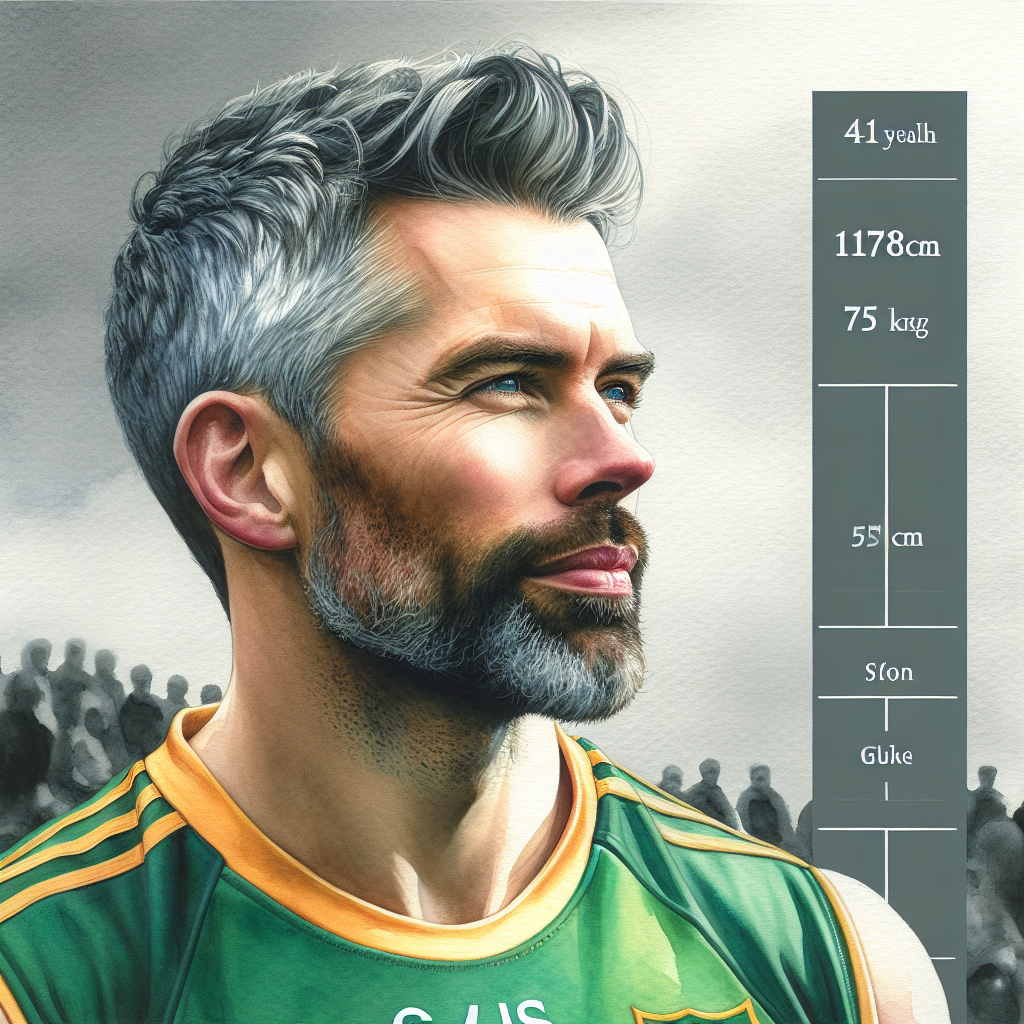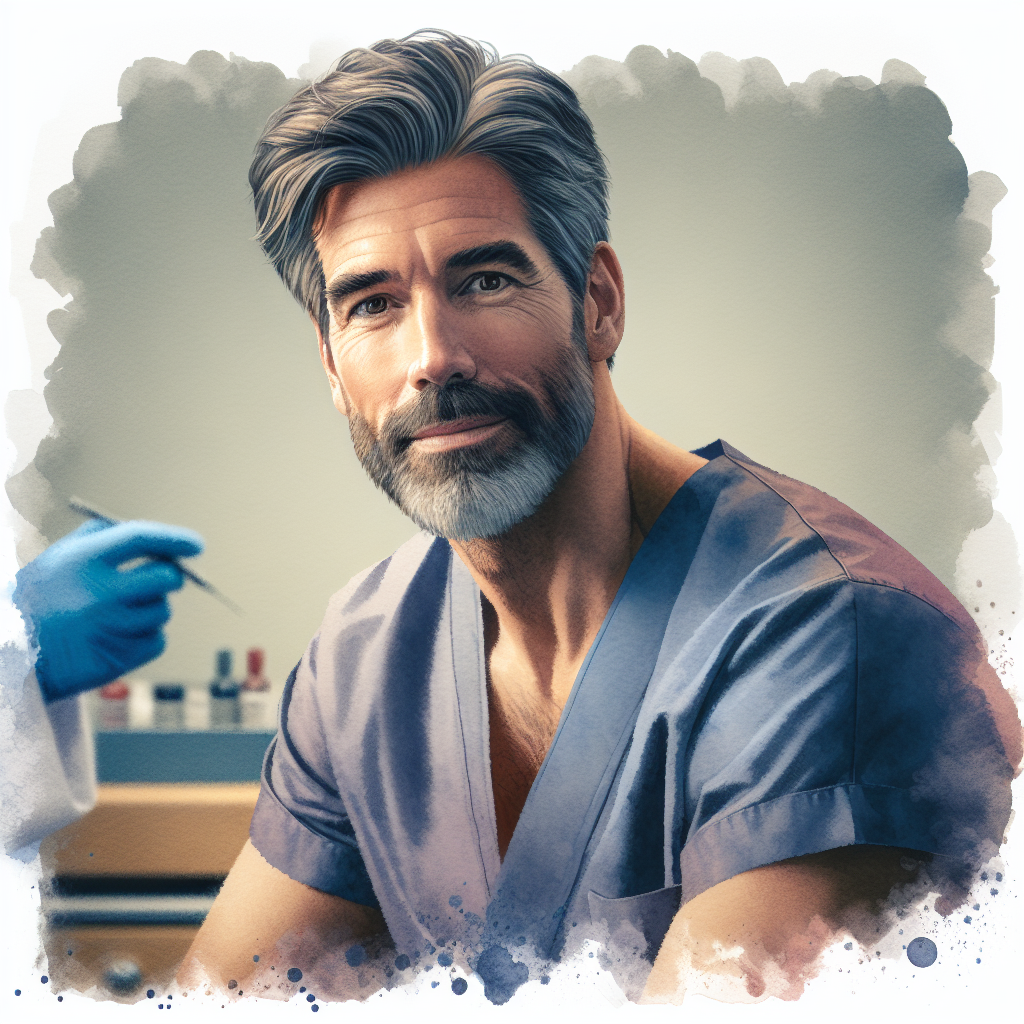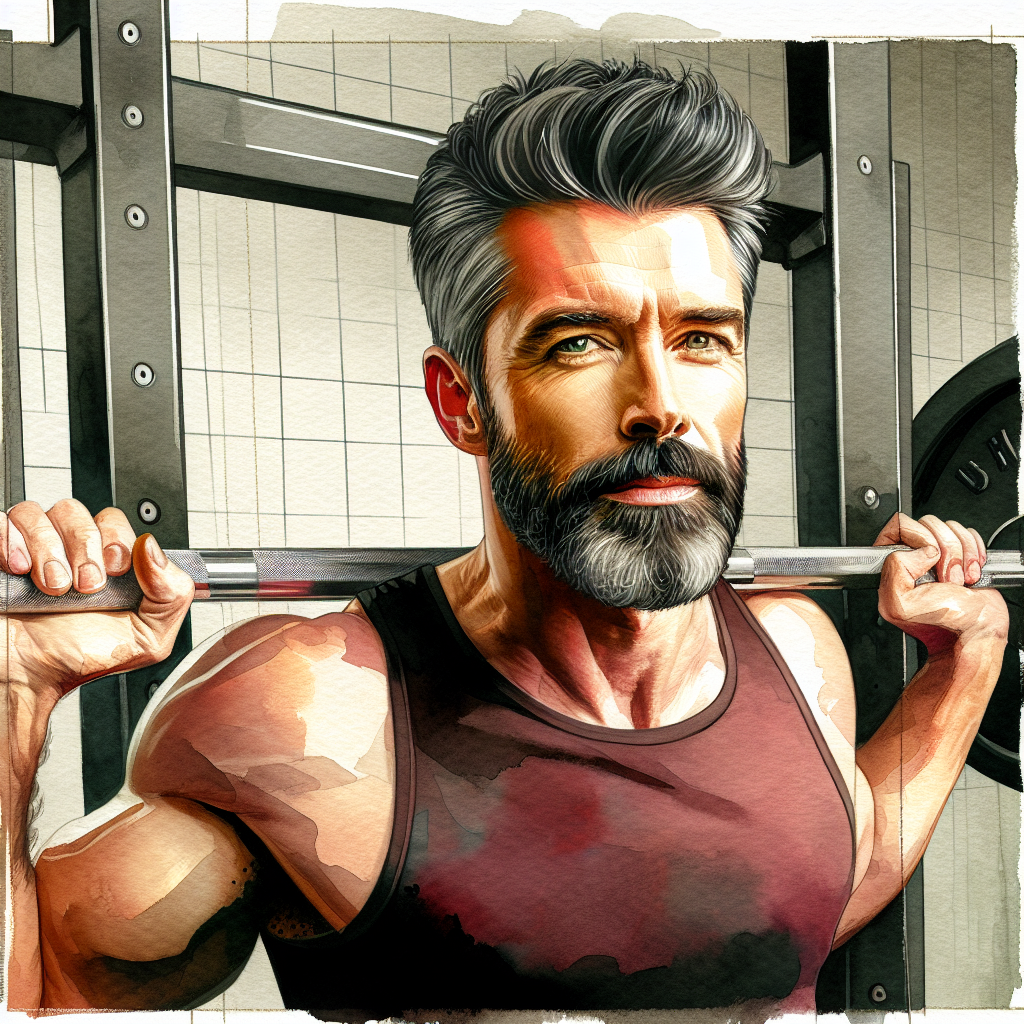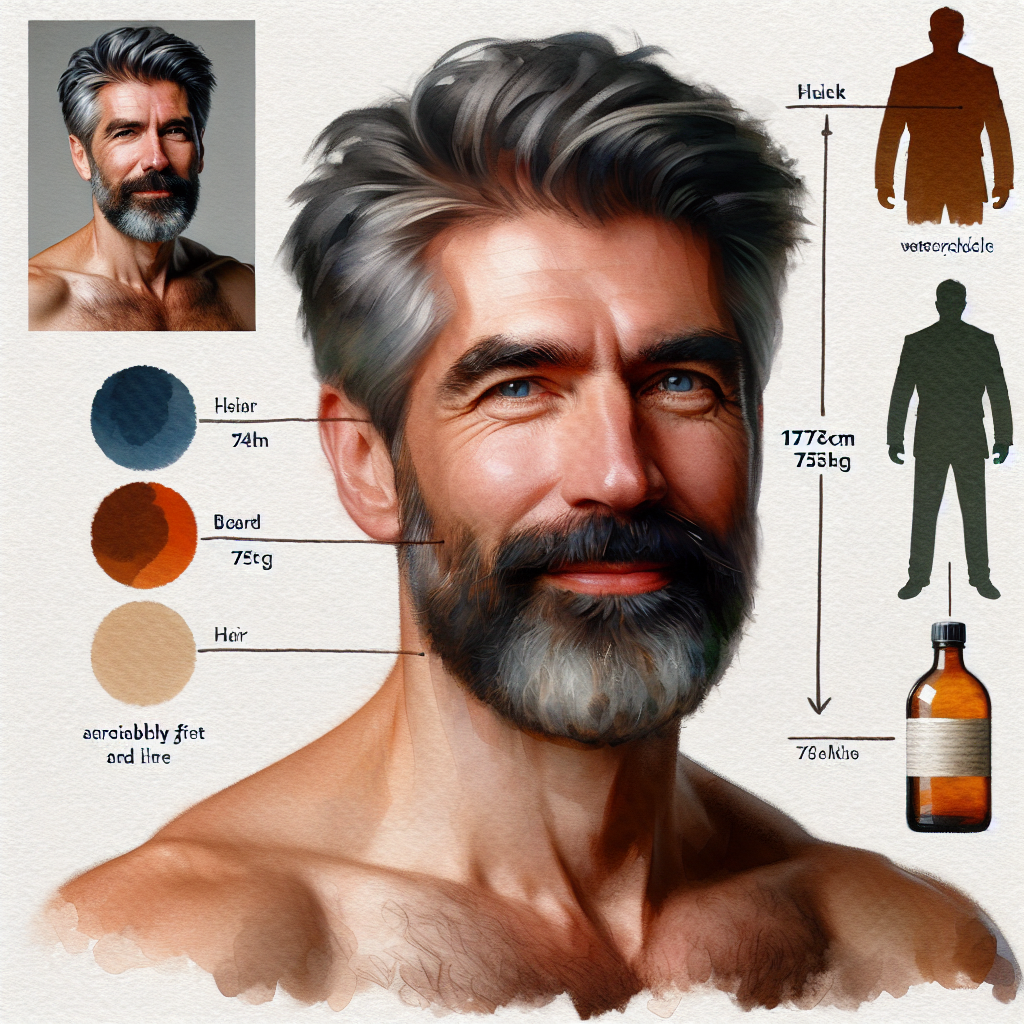Below you will find pages that utilize the taxonomy term “TRT”
Overcoming Initial Doubts About Professional TRT

When I first considered starting Testosterone Replacement Therapy (TRT), I’ll admit, I had my doubts. I mean, who wouldn’t? The idea of injecting yourself with hormones sounds like something out of a sci-fi movie, not something a regular lad from Dublin would do. But here’s the thing: sometimes, you’ve got to take a leap of faith, especially when it comes to your health.
The Doubts That Held Me Back
I remember sitting in the doctor’s office, staring at the prescription for Sustanon and HCG, thinking, “Is this really for me?” I’d spent years feeling run down, struggling with low energy, and battling anxiety that Lexapro only partially helped. But the idea of TRT felt… extreme. What if it didn’t work? What if it made things worse? And let’s be honest, the thought of needles didn’t exactly thrill me either.
Why I Quit Underground Labs: Lessons Learned

It’s a cold December morning here in Ireland, and as I sip my coffee, I can’t help but reflect on the journey I’ve been on with TRT. The rain’s lashing against the window, and the kids are already arguing over who gets to use the iPad first. Typical Sunday chaos. But today, I want to talk about something serious: why I quit underground labs for my testosterone needs.
Finding Online TRT Vendors: An Early Exploration

As the leaves turn golden and the crisp autumn air settles in, I find myself reflecting on my journey with testosterone replacement therapy (TRT). It’s been a game-changer for me, but let’s be honest—finding a reliable source for TRT can feel like navigating a minefield. Today, I’m diving into the world of online TRT vendors, sharing my early exploration and what I’ve learned along the way.
Understanding Low Testosterone: Researching During Lockdown

Ah, lockdown. The word alone brings back memories of endless Zoom calls, sourdough starters, and trying to keep the kids entertained while working from home. For many of us, it was a time of reflection and, let’s be honest, a fair bit of stress. But did you know that lockdown might have also had an impact on your testosterone levels? Let’s dive into the research and see what we can uncover.
Doomscrolling and Depression During the Pandemic

It’s October 2023, and the pandemic might feel like a distant memory for some, but for many of us, the mental scars are still fresh. I’m Steve, a 41-year-old Irishman, and like a lot of you, I spent far too much time doomscrolling during lockdowns. You know the drill—endlessly refreshing news feeds, reading about case numbers, and spiralling into anxiety. It’s no wonder my mental health took a nosedive.
Why I Decided to Invest in My Health with TRT

It’s a crisp September morning here in Ireland, and the weather’s been as unpredictable as ever. One minute it’s sunny, the next it’s lashing rain—classic Irish summer, eh? But you know what’s not unpredictable? The way I’ve been feeling since I started TRT (Testosterone Replacement Therapy). It’s been a game-changer, and today, I want to share why I decided to invest in my health with TRT.
The Impact of TRT on My Athletic Performance

As a 41-year-old Irishman juggling family life, work, and the occasional pint at the local pub, I’ve always tried to stay active. Whether it’s chasing after my two kids, Sarah and Adam, or squeezing in a quick workout between meetings, staying fit has been a priority. But let’s be honest—age and life have a way of catching up with you. That’s where TRT (Testosterone Replacement Therapy) came into the picture, and it’s been a game-changer for my athletic performance.
How I Managed Work Stress While on TRT

Ah, work stress. The bane of modern life. Add TRT (Testosterone Replacement Therapy) into the mix, and you’ve got yourself a proper Irish stew of challenges. Let me tell you, lads, it’s been a journey. But here’s how I’ve managed to keep my head above water while juggling work, family, and the occasional pint at the local.
The Work Stress Monster
Work stress is like that one relative who overstays their welcome during Christmas—it just won’t leave you alone. For me, it’s been a constant battle, especially since starting TRT. You’d think the extra testosterone would make me invincible, but no. Stress still finds a way to creep in, especially when deadlines are looming and the kids are bouncing off the walls.
How My Relationship with Food Has Changed on TRT

When I started TRT (Testosterone Replacement Therapy) a couple of years ago, I expected changes in my energy levels, mood, and maybe even my gym performance. What I didn’t anticipate was how it would completely shift my relationship with food. It’s been a wild ride, and I’m here to share how TRT has transformed the way I eat, think about food, and even how I cook for my family here in Ireland.
Using Meditation to Enhance TRT Benefits

As someone who’s been on TRT for a while now, I’ve learned that it’s not just about the injections or the numbers on your bloodwork. It’s about the whole package—diet, exercise, sleep, and, yes, even your mental state. That’s where meditation comes in. Now, before you roll your eyes and think, “Ah, here’s Steve going all Zen on us,” hear me out. Meditation isn’t just for yoga enthusiasts or people who chant “om” in their spare time. It’s a tool, and when used right, it can seriously enhance the benefits of TRT.
Why Tracking Metrics Is Critical for TRT
![]()
If you’re on TRT (Testosterone Replacement Therapy) like me, you’ll know it’s not just a ‘set it and forget it’ kind of deal. It’s more like tuning a vintage car—you need to keep an eye on the gauges, adjust the timing, and make sure everything’s running smoothly. And just like that old car, your body needs regular check-ups and fine-tuning. That’s where tracking metrics comes in.
How to Avoid Common TRT Pitfalls

Starting Testosterone Replacement Therapy (TRT) can feel like stepping into a whole new world. It’s exciting, sure, but it’s also a bit like navigating a minefield if you’re not careful. I’ve been on TRT for a while now—125mg of Sustanon weekly plus HCG—and I’ve made my fair share of mistakes along the way. So, let’s dive into some common TRT pitfalls and how you can avoid them.
1. Not Getting Regular Blood Work
One of the biggest mistakes I made early on was not getting regular blood work done. TRT isn’t a set-it-and-forget-it kind of deal. Your body’s response to testosterone can change over time, and without regular blood tests, you’re flying blind. I learned this the hard way when my estrogen levels shot up, and I started feeling like a hormonal teenager again. Trust me, you don’t want that.
Lessons from My First Year of TRT

It’s hard to believe it’s been a year since I started TRT. Time flies when you’re not constantly feeling like a bag of spuds dragged through a hedge backwards. For those of you who’ve been following my journey, you’ll know it hasn’t been all sunshine and rainbows, but it’s been worth every step. Here’s what I’ve learned in my first year of TRT.
The Good
Let’s start with the positives, because who doesn’t love a bit of good news? The most noticeable change has been my energy levels. Before TRT, I was constantly knackered. I’d wake up feeling like I’d been hit by a bus, and by midday, I was ready for a nap. Now, I’m up at the crack of dawn, ready to take on the day. It’s like someone flipped a switch in my brain.
The Role of Fasting in Supporting TRT Results

Ah, fasting. It’s one of those things that sounds like torture until you actually give it a go. I remember the first time I tried intermittent fasting—Jenny thought I’d lost the plot entirely. ‘You’re skipping breakfast? Are you mad?’ she asked, as if I’d just announced I was joining the circus. But here’s the thing: fasting isn’t just some fad diet. When done right, it can be a game-changer for your health, especially if you’re on TRT like me.
How I Built a Morning Routine with TRT

Ah, mornings. The bane of my existence for years. If you’d told me a few years ago that I’d be writing about how I love my morning routine now, I’d have laughed in your face. Back then, mornings were a chaotic mess of snoozing alarms, rushing out the door, and forgetting half the things I needed for the day. But since starting TRT (125mg Sustanon weekly plus HCG), I’ve managed to turn things around. Here’s how I built a morning routine that actually works—and why TRT played a big part in it.
How Testosterone Affects Emotional Resilience

How Testosterone Affects Emotional Resilience
Ah, emotional resilience. It’s one of those things you don’t really think about until life throws a curveball your way. For me, that curveball came in the form of anxiety and stress, which I’ve been managing with the help of TRT (125mg Sustanon weekly plus HCG) and, at one point, Lexapro. But let’s not get ahead of ourselves. Today, we’re diving into how testosterone affects emotional resilience, and I’ll be sharing some personal anecdotes along the way.
Advice for Those Considering TRT After My Journey

If you’re reading this, chances are you’re considering testosterone replacement therapy (TRT). Maybe you’ve been feeling sluggish, unmotivated, or just not yourself lately. Or perhaps your GP has mentioned your testosterone levels are lower than they should be. Whatever the reason, I’m here to share my journey and offer some advice—straight from the heart of a 41-year-old Irish lad who’s been on TRT for a while now.
Why I Started TRT
Let me take you back a few years. I was in my late 30s, juggling work, family life with Jenny and the kids (Sarah and Adam), and trying to keep up with my mam, Mary, who’s still as sharp as a tack. But something felt off. I was tired all the time, even after a full night’s sleep. My workouts felt like dragging a tractor through mud, and my mood? Let’s just say I wasn’t winning any ‘Husband of the Year’ awards.
Why Regular Check-Ins Are Key for TRT Success

As someone who’s been on TRT for a while now, I can tell you one thing: it’s not a ‘set it and forget it’ kind of deal. If you’re serious about getting the most out of your testosterone replacement therapy, regular check-ins are absolutely crucial. And no, I’m not just talking about the occasional blood test—though those are important too. I’m talking about a consistent, ongoing dialogue with your healthcare provider, and a bit of self-awareness thrown in for good measure.
Reflecting on My Mental Health Six Months on TRT

Six months ago, I started testosterone replacement therapy (TRT). At the time, I was a bit of a mess—low energy, brain fog, and anxiety that felt like it was running my life. Fast forward to today, and I’m sitting here with a cup of tea (yes, tea—I’m Irish, after all) reflecting on how far I’ve come. It’s been a journey, and I want to share it with you.
Using Exercise to Amplify the Benefits of TRT

If you’re like me—a 41-year-old Irish lad juggling TRT, family life, and the occasional pint at the local—you’ve probably wondered how to get the most out of your testosterone replacement therapy. Well, let me tell you, exercise is the secret sauce. It’s not just about lifting weights or running laps; it’s about amplifying the benefits of TRT in ways that can transform your life.
Why Exercise Matters on TRT
When I started TRT, I noticed a boost in energy and mood, but it wasn’t until I paired it with regular exercise that I truly felt like a new man. Exercise helps your body utilize testosterone more efficiently, improving muscle mass, fat loss, and overall well-being. It’s like giving your TRT a turbo boost.
How My Diet Changed with TRT

When I started TRT (Testosterone Replacement Therapy) back in 2022, I knew it would change my life. What I didn’t expect was how much it would change my diet. Sure, I’d read about the importance of nutrition for testosterone levels, but I didn’t realise how much my eating habits would shift once my hormones were balanced. Let me take you through the journey—because, let’s face it, food is life, especially when you’re Irish.
Three Months on TRT: Adjusting to My New Normal

It’s been three months since I started Testosterone Replacement Therapy (TRT), and I’ve got to say, it’s been a wild ride. If you’ve been following along, you’ll know I’m not one to sugarcoat things. So, let’s dive into the good, the bad, and the downright weird of adjusting to my new normal.
The Energy Boost
One of the first things I noticed was the energy boost. It’s like someone flipped a switch. I’m not talking about bouncing-off-the-walls energy, but a steady, consistent flow that keeps me going throughout the day. It’s been a game-changer, especially with two young kids running around. Sarah and Adam have more energy than a GAA team on match day, so keeping up with them has been a lot easier.
The Role of Hormones in Mental Health During Isolation

Ah, isolation. It’s a word that brings back memories of lockdowns, endless Zoom calls, and trying to explain to my kids why they couldn’t see their friends. For many of us, those days were a mental health rollercoaster. But have you ever stopped to think about how your hormones played a role in all of that? Let’s dive into the science—and a bit of Irish craic—to understand how hormones like testosterone and cortisol can mess with your head when you’re stuck at home.
How My Life Has Changed Six Months Into Professional TRT
Six months ago, I made the decision to start professional Testosterone Replacement Therapy (TRT). It wasn’t a decision I took lightly, but after years of feeling like I was running on empty, I knew something had to change. Now, half a year in, I can confidently say that TRT has been a game-changer for me. Let me walk you through how my life has transformed.
The Energy Boost
Before TRT, I felt like I was dragging myself through the day. Even simple tasks felt like climbing a mountain. Now, I wake up with a spring in my step. The energy boost has been incredible. I’m not just talking about physical energy, though that’s been a huge part of it. Mentally, I feel sharper, more focused. It’s like someone turned the lights back on in my brain.
The Role of Mental Health Support While on TRT

As I sit here, sipping on a cup of Barry’s Tea, I can’t help but reflect on the journey I’ve been on with TRT. It’s been a rollercoaster, to say the least. The physical changes are one thing, but the mental and emotional shifts? That’s where the real challenge lies. Today, I want to talk about the role of mental health support while on TRT, because let’s face it, it’s not just about the injections and the blood tests—it’s about keeping your head above water too.
How I Built an Exercise Plan Around TRT

When I started TRT (Testosterone Replacement Therapy) back in 2019, I knew it wasn’t just about the injections. It was about rebuilding my body, my energy, and my life. At 41, with two kids under six and a wife who deserves more than a couch potato for a husband, I had to get serious about my fitness. But here’s the thing: TRT isn’t a magic pill. It’s a tool, and like any tool, you’ve got to use it right. So, I set out to build an exercise plan that would work with my TRT, not against it.
Month 3 on TRT with a Practitioner: Settling into a Routine

Well, lads, here we are—three months into my TRT journey, and I’m finally starting to feel like I’ve got a handle on things. It’s been a bit of a rollercoaster, but I’m settling into a routine now, and I’ve got to say, it’s making a world of difference. Let me take you through the highs, the lows, and the lessons learned so far.
The Routine: Finding My Groove
When I started TRT back in April, I was a bit all over the place. Between figuring out the right dosage, managing the injections, and dealing with the occasional mood swings, it felt like I was constantly playing catch-up. But now, three months in, I’ve got a solid routine going, and it’s made a massive difference.
Month 1 with a TRT Practitioner: Early Results

It’s been a month since I started working with a TRT practitioner, and let me tell you, it’s been a wild ride. For those of you who’ve been following my journey, you’ll know I’ve been open about my struggles with low testosterone and anxiety. After years of feeling like I was running on empty, I finally decided to take the plunge and explore TRT. And now, a month in, I’m ready to share the early results.
My First Appointment with a TRT Specialist

It was a grey, drizzly morning in June 2020 when I walked into the clinic for my first appointment with a TRT specialist. The weather felt fitting—like the universe was setting the tone for what I expected to be a serious, life-changing conversation. I’d been wrestling with low energy, brain fog, and a general sense of ‘what’s the point?’ for months. After a bit of Googling (and a few too many late-night Reddit rabbit holes), I decided it was time to get my testosterone levels checked.
Reflecting on Early Mistakes in My TRT Journey

When I first started my TRT journey, I was as green as the fields of Kerry in spring. I thought I had it all figured out—just take the testosterone, and everything would fall into place. Boy, was I wrong. Looking back, I can see the mistakes I made, and I want to share them with you so you can avoid the same pitfalls.
1. Not Doing Enough Research
I’ll admit it—I didn’t do nearly enough research before starting TRT. I was so focused on the potential benefits that I didn’t fully understand the risks or the commitment involved. I didn’t know about the importance of regular blood tests or how to interpret them. I was flying blind, and it showed.
The Psychological Impact of Low Testosterone During Isolation

As we navigate through these unprecedented times of isolation, it’s crucial to talk about something that’s often overlooked: the psychological impact of low testosterone. I’m Steve, a 41-year-old Irishman, and I’ve been on TRT (Testosterone Replacement Therapy) for a while now. Let me tell you, the connection between testosterone levels and mental health is more significant than most people realize.
The Isolation Effect
Isolation can be tough on anyone, but for men with low testosterone, it can be particularly challenging. Testosterone isn’t just about muscle mass and libido; it plays a vital role in our mood, energy levels, and overall mental well-being. When you’re stuck at home, away from your usual routines and social interactions, these effects can become even more pronounced.
Finding Online TRT Vendors: The First Step

If you’re reading this, chances are you’re considering testosterone replacement therapy (TRT) or have already decided to take the plunge. Maybe you’re like me—a 41-year-old Irish lad who’s been on TRT for a while now—and you’re wondering where to start. Well, the first step is finding a reliable online TRT vendor. And let me tell you, it’s not as straightforward as ordering a pint of Guinness.